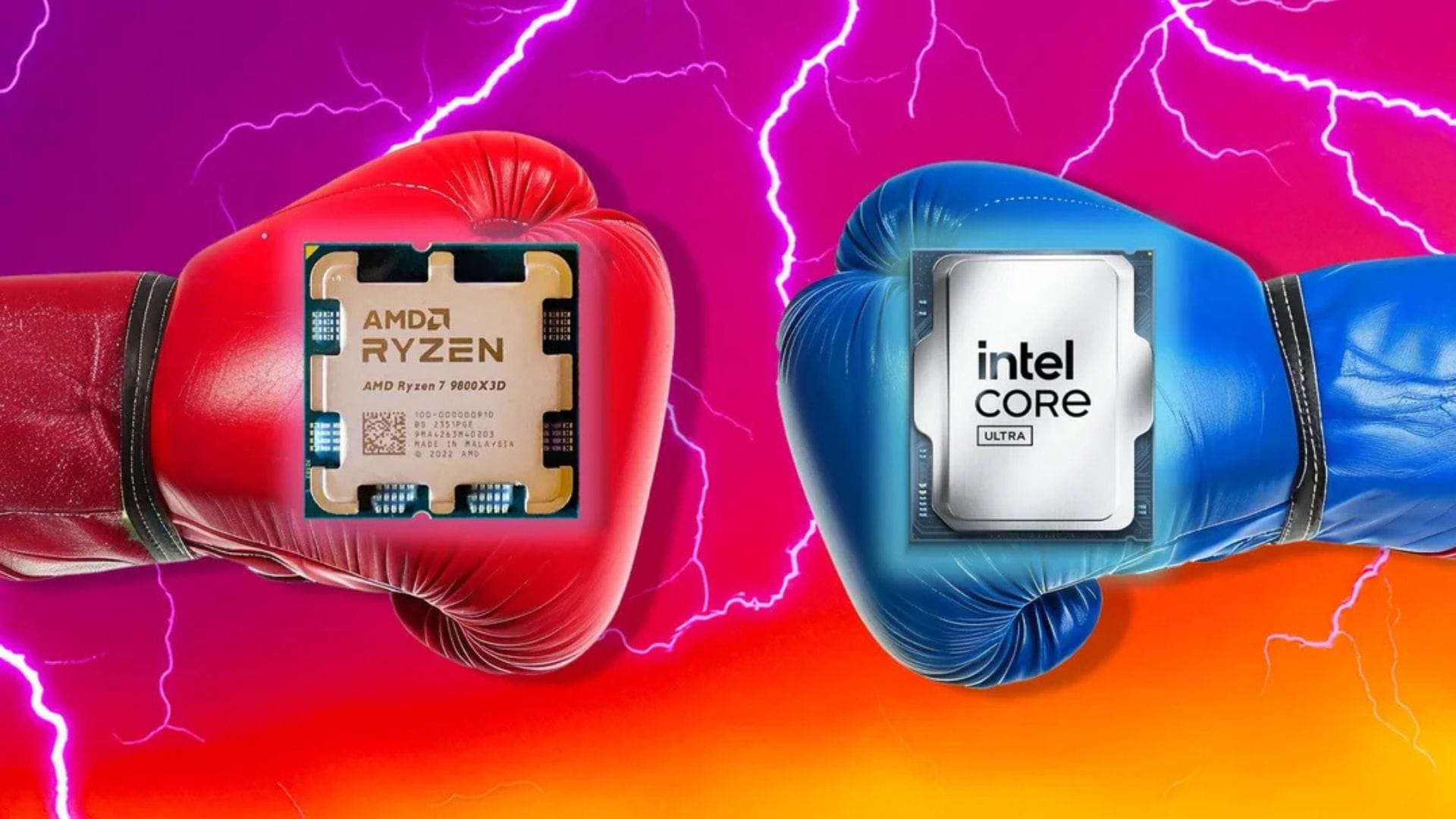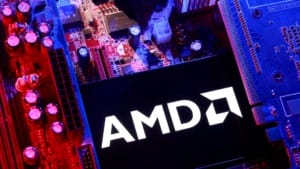AMD claims Ryzen AI processor delivers 75% faster gaming than Intel
AMD’s Ryzen AI 9 HX 370 processor boasts powerful AI and game-boosting tech and claims a 75% gaming performance boost over Intel’s Core Ultra 7.

AMD has released impressive internal benchmarks for its Ryzen AI 9 HX 370 processor, positioning it as a top performer for gaming on thin-and-light laptops. Competing directly with Intel’s Lunar Lake series, AMD’s latest benchmarks show significant wins across various games, boasting up to 75% faster performance than Intel’s Core Ultra 7 258V processor. Here’s what these results mean for gamers and tech enthusiasts looking for powerful yet portable devices.
Table Of Content
AMD Ryzen AI 9 HX 370 vs Intel Core Ultra 7: The core showdown
The AMD Ryzen AI 9 HX 370 processor has 12 cores, four Zen 5 and eight Zen 5c cores, and 24 threads. It offers a combined cache of 36MB, a maximum clock speed of 5.1GHz, and a configurable thermal design power (TDP) that can be adjusted from 15 to 54 watts. This flexibility makes it particularly suitable for thin-and-light laptops needing power and efficiency.
In comparison, Intel’s Core Ultra 7 258V features eight cores—four for performance and four for efficiency—with only eight threads, a max frequency of 4.8GHz, 12MB of cache, and a TDP range between 17 and 37 watts. Although both processors are equipped with neural processing units (NPUs), AMD’s NPU edges ahead with 50 trillion operations per second (TOPS) compared to Intel’s 47 TOPS. While this is a slight difference, it still gives AMD an advantage in processing tasks reliant on AI capabilities.
AMD’s internal benchmarks show remarkable gaming performance, claiming an average 75% speed advantage over Intel. In specific titles like F1 24 and Forza Horizon 5, AMD’s processor delivers over 50 frames per second (fps) improvements at 1080p on medium settings. Such frame rate boosts will make a noticeable difference for gamers, ensuring smoother and more responsive gameplay.
In these tests, AMD and Intel laptops were equipped with their respective game-boosting technologies. AMD leveraged its FSR 3 technology and the AMD HYPR-RX one-button game booster, optimising gaming performance. When comparing native performance alone—meaning without any additional game-enhancing features—the results are closer. Both processors perform comparably in high-demand games like Cyberpunk 2077, Ghost of Tsushima, and F1 24. Intel has the edge in titles like Hitman 3 and Marvel’s Spider-Man Remastered, while AMD outperforms Intel significantly in Call of Duty: Black Ops 6.
However, when additional gaming technologies like AMD’s FSR 3 and Intel’s XeSS upscaling solutions are factored in, AMD’s Ryzen AI 9 HX 370 processor emerges as the clear leader, showcasing notable performance gains across all games tested.
Upscaling comparison: AMD’s FSR 3 vs Intel’s XeSS
A major part of AMD’s benchmark comparison involved FSR 3, its proprietary upscaling technology, which is seen as a competitor to Intel’s XeSS and Nvidia’s DLSS. In each game tested, AMD’s FSR 3 outperformed Intel’s XeSS substantially, highlighting the benefits of AMD’s advanced AI-driven upscaling. Additionally, AMD’s HYPR-RX, which offers a simplified performance boost, further bolstered the Ryzen AI 9 HX 370’s results, allowing AMD to maintain its lead even when both processors relied on upscaling technology.
While Intel sees some improvements with XeSS, AMD’s FSR 3 remains superior in most scenarios, especially in GPU-intensive games where additional frames can improve gameplay. FSR’s compatibility with a wide range of GPUs, including those from other brands, gives it a unique edge, as this technology is accessible to a broader audience.
What this means for thin-and-light laptops
AMD’s Ryzen AI 9 HX 370 benchmarks come at an exciting time, as both the AMD Ryzen AI 300 series and Intel Lunar Lake processors have already been available for several months. Notably, the Intel Lunar Lake chip tested is not an exact equivalent to the Ryzen AI 9 HX 370, which may partly explain the significant performance difference observed. Still, AMD’s results highlight the processor’s strengths for gaming on slim and portable laptops, where efficient power usage and AI-powered enhancements are precious.
This processor has already been seen in laptops like the Asus Zenbook S 16, delivering impressive results. Beyond laptops, the Ryzen AI 9 HX 370 will also appear in a new mini-PC by GMKtec, which could rival Intel’s NUC line, and in portable gaming devices that lack a dedicated GPU. These compact devices could greatly benefit from AMD’s enhancements, as the powerful AI processing and FSR upscaling effectively fill the performance gap in systems without standalone graphics cards.
In summary, AMD’s Ryzen AI 9 HX 370 looks set to establish itself as a leader in gaming for thin-and-light devices. With strong AI capabilities and effective gaming optimisations, AMD’s latest benchmarks underscore how the Ryzen AI 9 HX 370 could become the processor of choice for gamers who need portability without sacrificing power.
















